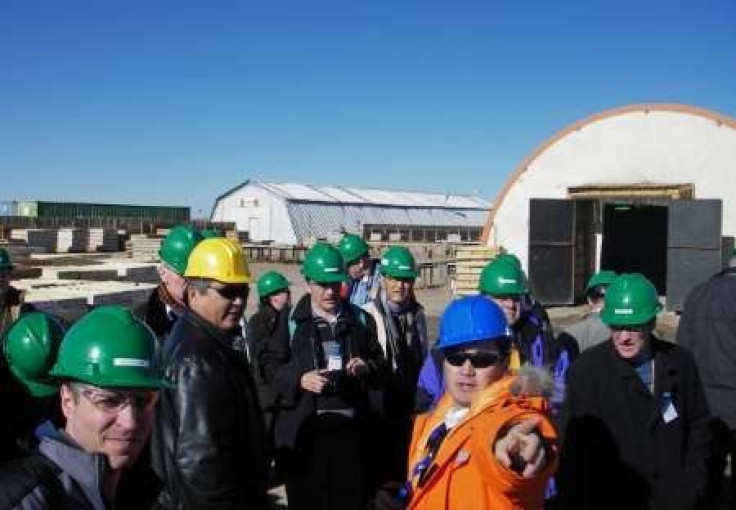Copper concentrate supply to China seen up on Oyu Tolgoi

Chinese smelters expect supplies of copper concentrate to rise as early as late 2012, paving the way for higher charges, as neighbouring Mongolia's Oyu Tolgoi copper and gold mine starts to come onstream, industry sources said on Tuesday.
That may prompt Chinese smelters to raise term treatment and refining charges (TC/RCs) requirements for 2012 after they won a more than 50 percent on-year increase to $72 a tonne and 7.2 U.S. cents a pound for the first half of 2011 and $90 and 9 cents for the second half.
Oyu Tolgoi, the world's largest undeveloped copper and gold project located 80 kilometers (47 miles) north of the Mongolia-China border, is 66 percent owned by Canada-listed Ivanhoe Mines Ltd .
The government of Mongolia holds the remaining share. Global miner Rio Tinto presently holds a 46.5 interest in Ivanhoe Mines, according to the Ivanhoe website.
"The startup (of Oyu Tolgoi) may help improve the concentrate shortage in the Chinese domestic market," Yang Changhua, senior analyst at state-backed research firm Antaike said.
TC/RCs are paid by overseas sellers to Chinese smelters for converting concentrate imports into refined metal and deducted from concentrate sale prices based on London Metal Exchange copper prices .
Higher charges, typically seen when supply rises or demand falls, cut concentrate import prices.
Spot copper concentrates changed hands at TC/RCs of around $85 and 8.5 cents to China in the past two weeks versus around $100 and 10 cents in June.
LOCATION MAKES CHINA NATURAL BUYER
China's location makes it a natural buyer for Oyu Tolgoi concentrates, which are now being offered to Chinese smelters for term contracts starting in 2013, traders and Chinese smelter sources said at a delivery point on the border with Mongolia near the Chinese city of Baotou.
The mine is set to start production tests in June 2012, with Chinese buyers expecting some spot concentrate sales in the fourth quarter of 2012. Commercial production is scheduled to start in the first half of 2013.
Spot concentrates typically are ad-hoc and offered only when they are available, compared to planned term sale.
"Oyu Tolgoi presently is under full-scale construction and is on course to become one of the world's largest copper-gold-silver producers," Ivanhoe Mines said in an email to Reuters.
"While present estimates anticipate the delivery of first ore from the open-pit mine to the concentrator during 2012, no sales commitments are being made for any potential production from the new mine in 2012."
Antaike's Yang said the mine output will not be sufficient to cover China's concentrate deficit, adding that Chinese smelters may still use the anticipated additional supply from Oyu Tolgoi as a bargaining chip to demand higher term TC/RCs in 2012.
Yang said apart from Oyu Tolgoi, some other new copper mines were also expected to come onstream in 2013, adding supply to the global market.
Chinese smelters typically hold the first round of term TC/RCs talks with international trading firms and global miners such as Freeport-McMoRan Copper & Gold and BHP Billiton during the LME Week in October and settle the charges a few weeks before the delivery year starts.
TERM OFFERS
Industry sources said six large- and medium-sized Chinese copper smelters were in talks with Rio Tinto for 3-year term contracts for concentrates to be produced by the Oyu Tolgoi mine.
Three international trading houses were also bidding for contracts, one Chinese smelter source said.
Nine bidders were in the second round after at least four Chinese smelters had left in the first round, two sources who are familiar with the talks said.
"We have not been told when the result will come," said one of the two sources.
© Copyright Thomson Reuters 2024. All rights reserved.











